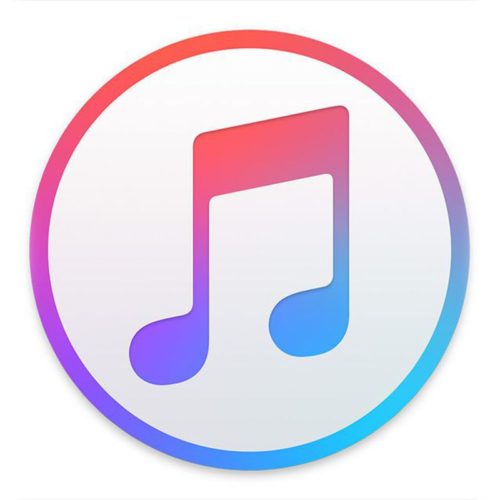RIP iTunes
mainApple is making the music system redundant.
It was always crap f0r classical.

Apple never gave a damn.

Apple is making the music system redundant.
It was always crap f0r classical.

Apple never gave a damn.
The Russian premiere of Modest Mussorgsky’s opera Salambo…

The emeritus music director of the Chicago Symphony…

The over-booked Finn had a hard time at…

An ecstatic reception of Petrenko’s Mahler Ninth with…

Session expired
Please log in again. The login page will open in a new tab. After logging in you can close it and return to this page.
And will remain crap for classical
It isn’t dead, just re-branded and distributed over three separate apps. It was a dumb idea. itunes just needed a UI makeover, not replicated three times over for each specific media file.
To make this more clear: iTunes will be renamed (!) and called “Music” and will work almost as iTunes currently does. It will be stripped from Podcasts and TV – both will be removed from iTunes (“Music”) and put into two separate apps. This applies for Mac users. For the moment nothing will change for PC users.
This is good news for this will bring an Apple app that will focus on music only. Very good actually. iTunes has never excelled in sound quality. But the library function is good, better than almost anything else, and will work also for classical music. You have to understand the usefulness of say “groups” and think through and work (yes!-spend some time managing your library) on how you yourself want to browse your library. Not many use the same method for storing CD’s and the same will apply for file based audio.
To get the best possible sound from iTunes you should use Pure Music (strongly recommended-I have no vested interest here 🙂 ) in combination with iTunes. It is possible to play the very best high-res files with that combination. If you believe in DSD it can handle that too, but you need a DSD DAC.
Thank you for your clear guidance on how to make the best of the Apple world. I’ll tell my partner to check it out.
Thanks to everyone who took the time to explain things a bit. I
This is a great summary. iTunes can play high-definition music, it just has to be transcoded into Apple Lossless format, or keep it in the (much larger) AIFF or WAV files, if you choose.
Also worth nothing that Apple demands that all music be delivered to them in high resolution. They only make low res MP3s available for sale, however.
Only iTunes for Mac is affected. The Windows version remains monolithic, as at present.
See https://arstechnica.com/gadgets/2019/06/answers-to-some-of-your-itunes-questions-old-libraries-windows-and-more/
Downloads were overtaken by streaming, pure and simple. Apple chose the wrong horse ultimately.
They have a streaming service — that’s the whole point of this change.
I don’t like streaming any more than I like radio in the past. I want to own my own music and be able to play it whenever and however I want, not rely on some DJ or streaming curator to decide what I hear when.
It’s still on Windows and the iTunes Store isn’t going anywhere. It’s simply renamed Music App and with movies & podcasts removed. Same music functionality.
Well, this is perhaps a little simplistic. The iTunes music store does have a great catalogue. Metadata is rubbish, the way music is sorted and how it can be found is pretty ridiculous, adequate for pop but not classical. iTunes as a software tool is excellent though, I have my music library stored as iTunes library, I enter my own metadata and it works perfectly, I’m very happy. I hope that all that functionality stays with the name change. Native support for FLAC would be nice too. Other than that I have no problems with iTunes. What’s the alternative?
Agree 100%
“Metadata is rubbish, the way music is sorted and how it can be found is pretty ridiculous, adequate for pop but not classical.”
And I might add, this wasn’t ever anything new with downloads and streaming; remember regular record stores? Unless they had a classical specialist, they never new how to categorize classical in the bins either.
JRiver MediaCenter
Untrue that it was totally crap for classical. While it can definitely be said that the labelling of track names (or “songs” as they would have us call them) etc was geared towards popular music and so was annoying and made for confusion and inconsistency, the store’s classical library was large, certainly as large as most current streaming services like Spotify and Google Play. Unlike with streaming, one could “own” a sort of hard copy of a song or album, and most of the time for way cheaper than buying actual CDs in most countries.
Certainly the royalties paid to artists weren’t great, but it seems that streaming royalties aren’t much better, and weren’t much better before iTunes anyway, because the sale of classical records is so limited.
It still has the music app, is it any different? How do you even know?
All they did was move iTunes music into its own app, Music. It’s still there.
:'(
I for one am very sorry to see it go as I used it to rip all my CDs into iTunes and use it to manage my collection. It has a very good search function if you catalogue your CDs carefully. I’m hoping the library function will be retained in some form by Apple.
I think you’ll still be able to rip your CDs. It’s just being split up into different parts.
the fact that FLAC files cannot be played in iTunes and Apple “invented” their own lossless format to confirm the isolated environment and aggressive attitude (and many other additional annoying reasons) make this software totally useless for classical and high res music in general… so happy to see it dead… I will personally wait for my MacBook’s natural death and then will move back home to Windows
Useless? Nonsense. It’s easy to transcode between ALC and FLAC, use whichever library/playback app you prefer, regardless of the choice of format your music provider rammed down your throat.
Bill: The real problem is you have to have quite a bit of technical knowledge (and effort) to get round the limitations in the software. Not everyone has your skills and patience.
I have over 5000 classical pieces from Apple iTunes, many alternative recordings, quality for Lossless is fine if you don’t need HD. Service is exemplary.
The service is being re-packaged, not discontinued
The real problem for classical is not the software – as others have noted you can edit the metadata and add new genres (I use “Classical – Orchestral”, “Classical – Chamber” etc.).
The real problem is bitrate. Unless you’re listening in a noisy environment or on extremely poor equipment then lossy AAC doesn’t sounds as good as FLAC or the Apple lossless equivalent. Yet the iTunes store is stuck at 256 and that’s also the default for ripping from CD….
If you can’t be bothered to go to the iTunes Preferences and change the CD import setting to your desired choice, how serious can you really be about the sound quality? I’d rather use something like XLD to make sure that I’ve got an accurate rip anyhow, then load the result into iTunes (or whatever music catalog/playback app floats your boat) but YMMV.
Bill, I do the same. But many music lovers are technophobes…
As long as the new Music app works basically like iTunes, minus the video & podcast and other junk that I don’t use or care about, fine. I just want an easy way to manage my library of music, to move tracks back and forth between devices and to be able to burn or rip CDs.
What I worry about is my iPod Classic dying, since they’ve discontinued it. Though my IPhone7 has nearly as much storage space (128MB vs. 160 Mb for the iPod), I hate the interface on the iPhone’s Music app. My iPod Classic is now 7 years old, and if it dies I won’t have a way to replace it with a simple, dedicated music player with a large capacity as I have now. The iPod touch is basically the iPhone without the phone part, so it is no solution (or have they discontinued it too anyway?) . I just want a music player – I don’t need it to play games, videos, or go online.
Apple Music’s streaming service, Apple Music, has an extensive library with latest releases, old and historical recordings and box sets and very searchable. One of the only major labels absent is Hyperion. The sound quality, with appropriate equipments, can be better than CD. Try it with every month’s titles reviewed by Gramophone or BBC Music Magazine and you will find many if not most of the titles you can access immediately.
Better than CD? At 256?
Apple uses 256kbps AAC, which is better than 320kbps MP3. You can also upload your CDs to the cloud and Apple Music will keep the original quality. I have also done comparison with the Unchida/Tate Mozart cycle and found the streaming is at least as good as CD. Just a personal observation.